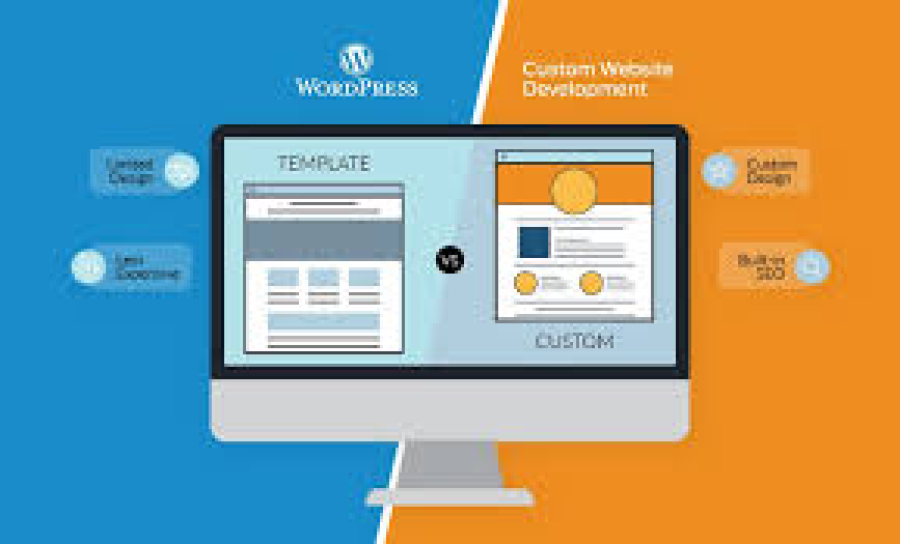WordPress vs Shopify: Which is Better for an E-Commerce Store
When it comes to building an e-commerce store, two platforms often dominate the discussion: WordPress and Shopify. Both offer robust features and flexibility, but choosing the right platform for your online store depends on your business needs, goals, and technical expertise. In this article, we’ll compare WordPress with Shopify, examining their key features, benefits, and challenges to help you decide which one is best for your e-commerce store in 2025.
Long Description
In the world of e-commerce development, the decision between WordPress and Shopify is crucial. Both platforms offer distinct advantages, making them suitable for different types of businesses. Here’s a detailed comparison of the two:
1. Ease of Use:
Shopify: Known for its user-friendly interface, Shopify is designed specifically for building online stores. It offers a drag-and-drop builder and a range of pre-designed templates. Shopify is ideal for beginners who want to start selling quickly without worrying about the technical aspects of building a website.
WordPress: While WordPress offers greater flexibility, it has a steeper learning curve, especially when integrated with WooCommerce for e-commerce. Setting up WordPress requires more technical know-how compared to Shopify, but it provides more control over the customization of your site.
Why it matters:
Shopify is easier for non-technical users and offers built-in features.
WordPress offers more control over design, content, and functionality, but it requires more time and expertise.
2. Customization and Flexibility:
WordPress: WordPress is an open-source platform, which means you have complete control over your website’s design, features, and functionality. With WooCommerce, you can customize your e-commerce store extensively, from themes to plugins, allowing you to create a unique online shopping experience.
Shopify: While Shopify offers some customization, it is not as flexible as WordPress. It provides a range of themes and apps, but customization can be limited without upgrading to more expensive plans or hiring a developer.
Why it matters:
WordPress allows for complete customization, which is ideal for businesses that need advanced features.
Shopify is more restrictive in terms of customization, but its pre-built templates are sufficient for small to medium-sized stores.
3. Cost:
Shopify: Shopify’s pricing starts at a monthly subscription fee, which includes hosting, security, and customer support. However, there are additional fees for premium apps, themes, and payment gateways.
WordPress: WordPress itself is free, but you’ll need to pay for hosting, domain, and premium themes and plugins. When using WooCommerce, you may also need to invest in additional extensions to get the full functionality you need.
Why it matters:
Shopify’s subscription-based pricing can be predictable, but additional costs may arise as your store grows.
WordPress may have lower upfront costs, but you’ll need to pay for hosting and other associated expenses.
4. SEO and Marketing:
WordPress: WordPress is highly customizable for SEO, with powerful plugins like Yoast SEO and Rank Math to improve search engine rankings. It also allows for detailed content management, making it easier to create optimized blog posts and landing pages.
Shopify: Shopify is optimized for SEO out of the box, with features like automatic meta tags, URL customization, and built-in SEO tools. However, WordPress gives more control over advanced SEO techniques, such as blog creation and on-page optimization.
Why it matters:
WordPress provides more control over SEO, especially if you’re looking to implement advanced content marketing strategies.
Shopify offers a simpler solution for SEO, which works well for stores that want an easy, streamlined approach.
5. Payment Gateways:
Shopify: Shopify supports a wide range of payment gateways, including Shopify Payments, which eliminates transaction fees for using third-party gateways. It also supports international payments and multi-currency options, making it ideal for global businesses.
WordPress: WooCommerce supports multiple payment gateways, including PayPal, Stripe, and bank transfers. However, it’s important to note that you may need to configure these payment systems manually, depending on your payment provider.
Why it matters:
Shopify provides a simplified payment solution, especially for international businesses.
WordPress with WooCommerce offers more flexibility in terms of payment methods, but it may require extra configuration.
6. Security:
Shopify: Shopify is a fully-hosted solution, which means it handles security, including SSL certificates and PCI compliance. As a result, you don’t need to worry about the technicalities of maintaining your site’s security.
WordPress: Security on WordPress depends on the hosting provider, and you need to ensure your site is PCI compliant and has an SSL certificate. You can use security plugins like Wordfence to protect your store, but the responsibility lies with you.
Why it matters:
Shopify handles security for you, making it an ideal choice for those who want a hassle-free experience.
WordPress requires more maintenance and attention to ensure your site is secure, but offers more control.
7. Scalability:
Shopify: Shopify is highly scalable, with plans that can grow with your business. As your store expands, Shopify’s infrastructure can handle increased traffic and sales.
WordPress: WordPress is also scalable, but you need to ensure your hosting environment can handle high traffic. As your store grows, you may need to upgrade your hosting plan and optimize your site for performance.
Why it matters:
Shopify provides easy scalability with no need to manage server resources.
WordPress can scale well, but you may need more technical expertise to manage performance.
Conclusion
Both WordPress and Shopify offer compelling features for building an e-commerce store, but the choice ultimately depends on your business’s needs, budget, and technical capabilities. Shopify is ideal for beginners who want a hassle-free, all-in-one e-commerce platform, while WordPress offers greater flexibility and control for businesses that require more customization and scalability.


 by Emily
by Emily




